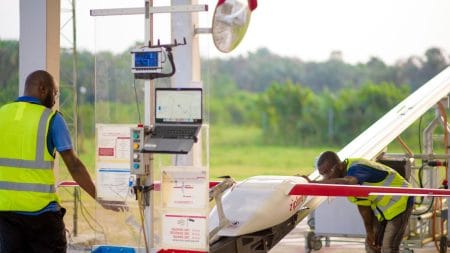More than 20 countries worldwide have restricted access to ChatGPT, including nine in Africa, according to a July 2025 report by Cybernews that analyzed OpenAI’s service data.
Unlike China, Russia, and Iran — which have imposed political bans while building domestic AI systems — African restrictions stem from a mix of weak infrastructure, sanctions, conflict, and regulatory uncertainty.
African countries restricting ChatGPT
- Eritrea: Limited infrastructure, state-controlled information
- Libya: Political instability, lack of regulatory framework
- Eswatini: Small market, regulatory uncertainty
- Burundi: Poor digital policy, underdeveloped infrastructure
- South Sudan: Ongoing conflict, weak infrastructure
- Sudan: Authoritarian restrictions, conflict-related disruptions
- Central African Republic: Fragile governance, limited infrastructure
- Chad: Restricted internet access, political interference
- Democratic Republic of Congo: Sanctions, lack of digital regulation
These nations stand in stark contrast to Nigeria, Kenya, South Africa, and Ghana, where ChatGPT use is widespread and governments are actively pursuing AI regulation and innovation.
The African Union’s 2024 AI strategy calls for an “Africa-owned, people-centered, inclusive approach” to boost capacity while reducing dependence on foreign systems. Experts warn that without proactive adoption, parts of the continent could miss out on the global AI-driven economy projected to add trillions of dollars by 2030.
At the 2024 Global AI Summit in Kigali, Rwandan President Paul Kagame urged decisive action. “Africa can’t afford to be left behind, once again playing catch-up. We have to adopt, cooperate, and compete because it is in our best interest,” he said.
Meanwhile, global competition is heating up with alternatives like Anthropic’s Claude, Google’s Gemini, Elon Musk’s Grok, and Meta’s AI models. If systemic challenges persist, African countries with restrictions risk becoming consumers rather than creators of AI technologies.
The stakes are high. As Geoffrey Hinton, often called the “godfather of AI,” has warned, AI could pose existential risks if unchecked. Others, like Fei-Fei Li, stress that a human-centered approach is essential to preserve dignity and agency.
For Africa, the choice is clear: restrict and risk exclusion, or embrace and shape an AI future that reflects its own priorities.






